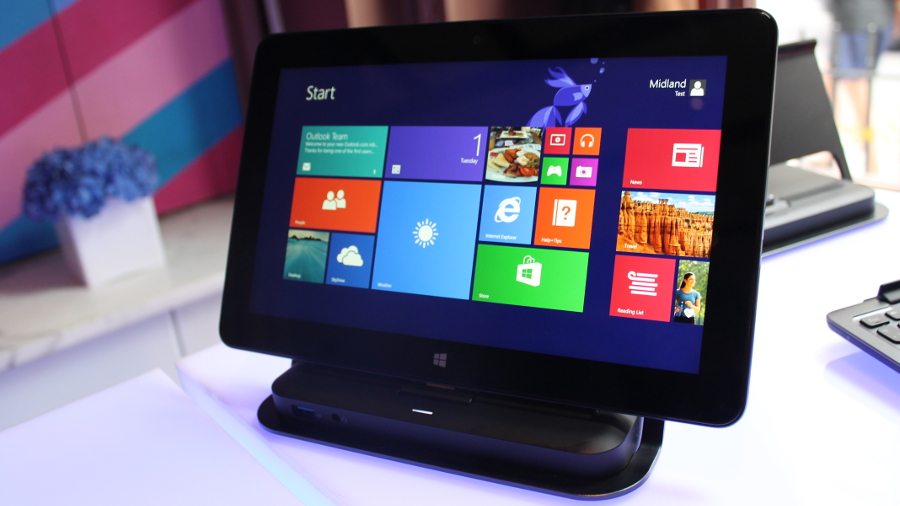Tablets: what are the business advantages?
More and more businesses are turning to tablets, and with good reason

Sales of tablet computers have exploded in recent years, with good reason: they're the perfect devices for students and sofa surfers alike. But they're not just for casual use. Tablets are also superbly powerful business tools, which is why more and more businesses are turning to tablets for their everyday IT needs. By 2016, 30% of all enterprise end-user mobile computing devices will be tablets, and corporate purchases will account for 18% of the global tablet market.
So why are they buying them?
Cost is a factor, of course: tablets' low purchase price makes them attractive, and their ease of use means they reduce support and training costs too. But the biggest benefit to businesses is in increased productivity.
Tablets for business: the bottom line
For businesses, tablets can deliver a significant productivity boost - and not just because employees who use them feel more valued than those forced to lug ancient laptops around. Like smartphones they're always on and wake instantly from sleep, so there's no waiting for the computer to catch up.
They can go places that normal computers can't, because they're as portable and accessible as clipboards, with integrated wireless networking and in some models, high-speed mobile broadband too. They're almost as light as clipboards too.
And they can run apps that are specifically designed to speed up common tasks such as data entry, note taking and reporting from site visits. That's a particular boon for any business that currently relies on paperwork and form-filling.
Take field service staff, for example: tablets can carry not only the necessary forms but technical libraries, maps and schematics. Sales staff can access email, calendaring and CRM software, and do so in a way that's acceptable in client meetings where pulling out a laptop might be inappropriate. Insurance assessors can easily enter claim details and add location data and even photography. And executives can write reports, build models, communicate, delegate and sign off documents.
Are you a pro? Subscribe to our newsletter
Sign up to the TechRadar Pro newsletter to get all the top news, opinion, features and guidance your business needs to succeed!
Go-anywhere, do-anything devices
Tablets thrive in all kinds of environments. They're great in education, in public sector organisations and in healthcare. They can be used to explore architects' and surveyors' plans on sites, or to create, adjust and deliver presentations on the road.
They can be effective point-of-sale devices and promotional displays. They can even become laptops for large data entry jobs via affordable docking stations that deliver the best of both worlds: portability when you need it and a full-sized keyboard and additional ports when you don't.
Most importantly of all, tablets integrate with your business's other systems. For example, Dell tablets with Intel Core or Atom processors and Windows 8 run Microsoft Office and can be managed with the same enterprise-level password, firewall and encryption security as Windows 8 PCs, and the integrated SkyDrive storage enables effortless sharing of files and documents between tablets on the move and PCs back at base.
The appeal is obvious: by combining flexibility, convenience, ease of use and security in perfectly portable packages, tablets give businesses the power to do more.
//image: dellvenue11pro.jpg
//caption: Tablets are incredibly flexible and thrive in all kinds of environments, from building sites to boardrooms.
Writer, broadcaster, musician and kitchen gadget obsessive Carrie Marshall has been writing about tech since 1998, contributing sage advice and odd opinions to all kinds of magazines and websites as well as writing more than a dozen books. Her memoir, Carrie Kills A Man, is on sale now and her next book, about pop music, is out in 2025. She is the singer in Glaswegian rock band Unquiet Mind.
